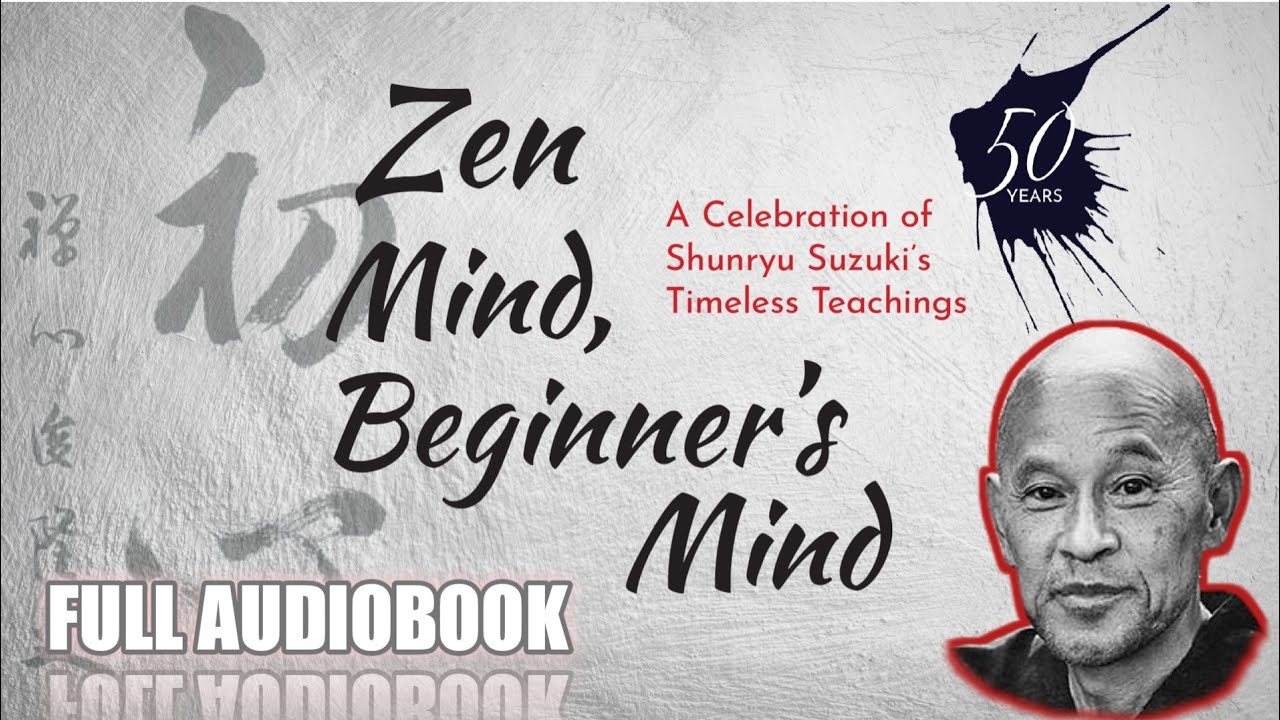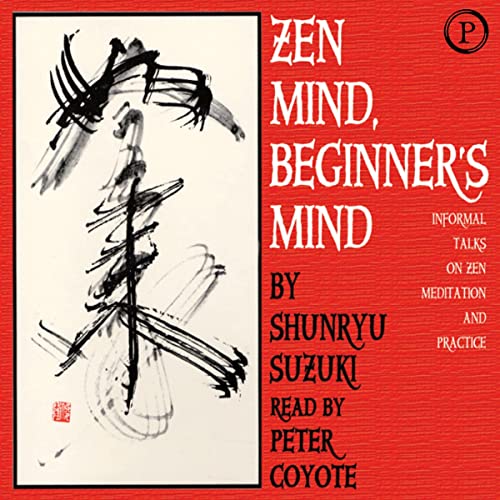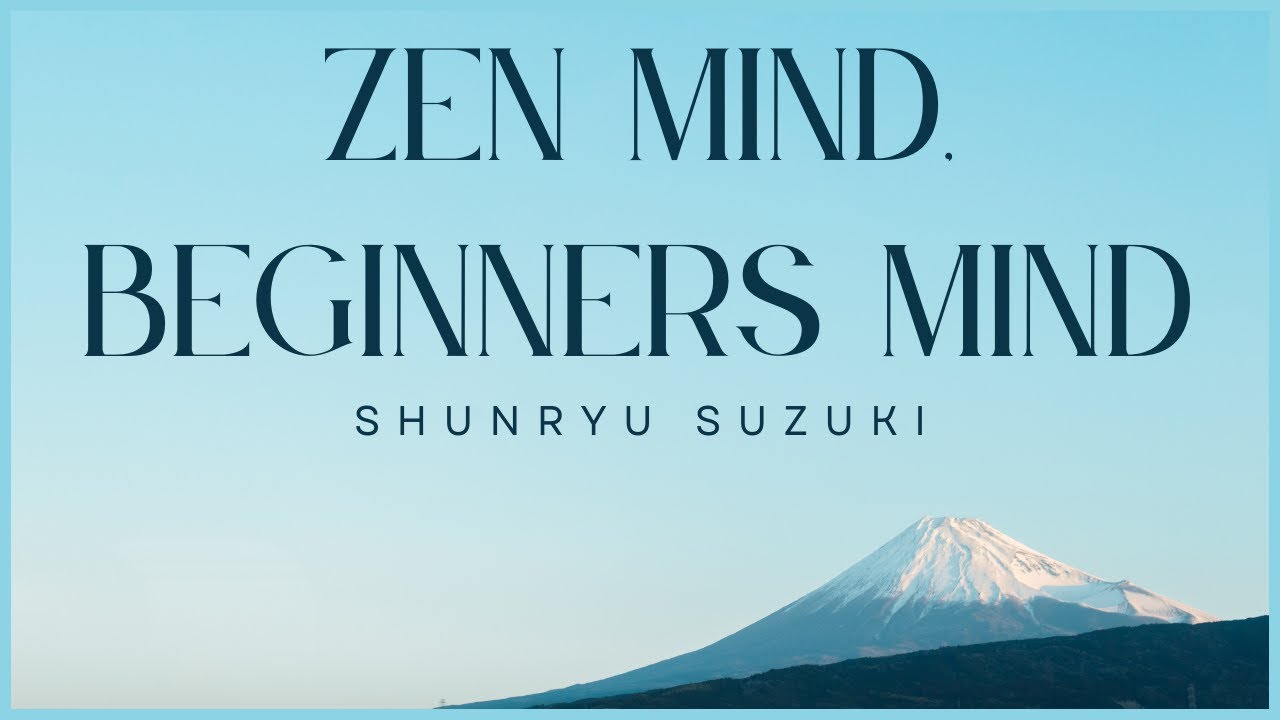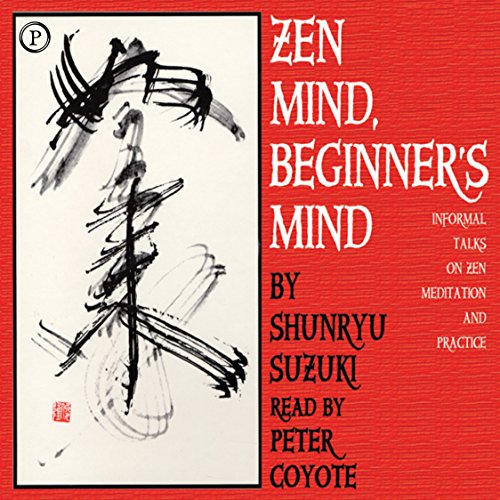Shunryu Suzuki’s “Zen Mind, Beginner’s Mind” audiobook explores Zen Buddhism’s core principles. It offers practical insights for spiritual growth.
“Zen Mind, Beginner’s Mind” by Shunryu Suzuki is a must-listen for anyone interested in Zen Buddhism. This audiobook delves into the essence of Zen practice, emphasizing the importance of maintaining a beginner’s mindset. Suzuki’s teachings are simple yet profound, making complex Zen concepts accessible to everyone.
The audiobook guides listeners through meditation practices and philosophical reflections. It helps cultivate mindfulness and spiritual awareness. Whether you’re new to Zen or looking to deepen your understanding, this audiobook provides valuable wisdom. Embrace Suzuki’s teachings to enhance your spiritual journey and find inner peace.

Introduction To Shunryu Suzuki And Zen Buddhism
Discover Shunryu Suzuki’s profound teachings in “Zen Mind, Beginner’s Mind” audiobook. Explore Zen Buddhism principles through accessible and enlightening lessons. Perfect for both beginners and seasoned practitioners.
Life And Legacy Of Suzuki
Shunryu Suzuki was a Japanese Zen monk. He was born in 1904. He moved to the United States in 1959. Suzuki founded the San Francisco Zen Center. He also established the Tassajara Zen Mountain Center. His teachings focused on Zen meditation and simplicity. Suzuki’s book, “Zen Mind, Beginner’s Mind,” became very popular. This book introduced many people to Zen Buddhism. Suzuki’s legacy lives on through his students and books. His teachings continue to inspire people around the world.
Core Principles Of Zen Buddhism
Zen Buddhism emphasizes meditation and mindfulness. It teaches living in the present moment. Zen encourages understanding the nature of the mind. It focuses on simplicity and humility. Practicing Zen involves sitting meditation, known as Zazen. Breathing and posture are essential in Zazen. Zen also values direct experience over theoretical knowledge. It promotes the idea of the “beginner’s mind”. This means approaching life with openness and curiosity. Zen principles help cultivate inner peace and awareness.
The Birth Of ‘zen Mind, Beginner’s Mind’
Shunryu Suzuki wanted to share Zen with everyone. He believed in the beginner’s mind. This mind is open and ready to learn. His students collected his teachings. They made a book from his words. The book has simple, clear lessons. It helps people understand Zen.
The book changed how the West saw Zen. Many people read it. They found Zen easier to understand. The teachings were simple but deep. This book made Zen popular in the West. It opened many minds. People began to practice Zen more.
Key Themes Explored
A beginner’s mind is open and free from preconceptions. It embraces curiosity and wonder. This mindset allows for growth and learning. Shunryu Suzuki emphasizes the importance of maintaining this attitude. It helps in understanding Zen practice better.
Mindfulness means being fully present in the moment. It involves paying attention to your thoughts and feelings. Awareness helps in understanding yourself better. Practicing mindfulness can lead to a more peaceful and focused life. Shunryu Suzuki teaches how to incorporate this in daily life.
Simplicity is a core theme in Zen practice. It means removing unnecessary distractions. Simple practices can lead to profound insights. Shunryu Suzuki emphasizes minimalism in thoughts and actions. This helps in achieving a clear and peaceful mind.

Insights On Meditation
Zazen is the heart of Zen practice. It involves sitting in a quiet place. Focus on the present moment. Thoughts will come and go. Just observe them without judgment. Practice daily to see progress.
Breathing is essential in Zazen. Sit comfortably and breathe naturally. Focus on each inhalation and exhalation. Count your breaths if it helps. This will calm your mind. Deep breathing can reduce stress.
Posture is important in Zazen. Sit with a straight back. Your hands should form a cosmic mudra. Find a quiet place to meditate. Use a cushion if needed. Ensure the room is calm and peaceful.
The Path To Enlightenment
Dualistic thinking creates separation and conflict. Zen practice helps in letting go of this mindset. It teaches us to see the world as a whole. Meditation is a key tool in this process. It helps us to understand the unity of all things. This leads to inner peace.
Everything in life is impermanent. Nothing lasts forever. This includes our thoughts and feelings. Accepting impermanence leads to a deeper understanding of life. It helps us to live in the present moment. This is a core teaching in Zen.
Compassion and wisdom are central to Zen practice. Compassion means caring for others deeply. Wisdom is understanding the true nature of reality. Together, they guide us on the path to enlightenment. Practicing compassion helps us connect with others. Gaining wisdom helps us see the world clearly.
Challenges And Misconceptions
Many western readers misinterpret Zen teachings. They often think Zen is a quick fix for stress. Zen is not about instant peace. It requires practice and patience. Some believe Zen is a religion. Zen is more of a philosophy and way of life. Another common mistake is thinking Zen means emptying the mind. Zen focuses on mindfulness and awareness. Misunderstanding these concepts can lead to frustration.
New practitioners face many obstacles. One common issue is impatience. Many give up too soon. It’s important to stay consistent. Another challenge is doubt. Doubting the process can cause setbacks. Practice with an open mind. Some struggle with distractions. Create a quiet space for practice. Physical discomfort can also be an issue. Find a comfortable sitting position. Breaking these obstacles into small steps can help.
Influence And Reception
The audiobook has received widespread acclaim. Many people praise its simplicity and depth. Critics note its profound insights into Zen practice. Some say it transforms the listener’s understanding of life. The narration is also highly praised. It captures the essence of Suzuki’s teachings beautifully. Some critiques mention the repetitive nature of the content. They feel it could be more concise. But overall, the positive reviews outweigh the negatives.
The audiobook has a lasting impact on modern Zen practice. It serves as a gateway for new practitioners. Many Zen teachers recommend it to their students. It helps them understand the basics of Zen. The teachings are easy to grasp yet profound. They offer timeless wisdom. Practitioners often refer back to it. It has become a classic in Zen literature. Many find its lessons applicable to everyday life.

Exploring The Audiobook
The narration of this audiobook is clear and calm. The interpreter brings the essence of Shunryu Suzuki’s teachings to life. Each word is spoken with care and attention. This enhances the overall experience of the listener.
The audiobook is accessible to all ages. Its engaging nature keeps the listener’s interest. Even complex ideas are made simple and easy to understand. This makes it perfect for beginners in Zen practices.
Choose a quiet place to listen. Sit comfortably and relax. Let the words flow through your mind. Don’t try to understand everything at once. Listen multiple times for deeper understanding.
Conclusion
Experience the timeless wisdom of Shunryu Suzuki with the “Zen Mind, Beginner’s Mind” audiobook. Embrace mindfulness and simplicity in daily life. This audiobook guides you through Zen principles effortlessly. Dive into a transformative journey and cultivate a fresh, beginner’s perspective.
Listen now and start your path to inner peace.



